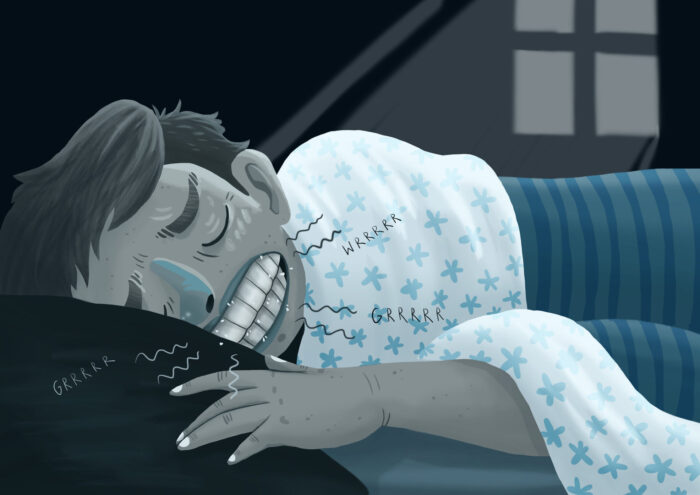Understanding Teeth Grinding and Early Signs of Worn Teeth
October 16, 2025 9:00 am
Ever wake up with your jaw feeling tense or your bite feeling slightly different? Maybe your molars look a bit flatter in the mirror, or you’ve spotted small chips that weren’t there before. Those subtle changes can all point to one underlying issue: teeth grinding.
At Robert J. Freitas II, DDS, Family Dentistry in Brentwood, Dr. Freitas often spots early signs of grinding before patients even know it’s happening. It’s a sneaky habit—one that can wear away enamel, stress the jaw, and even change the way your teeth fit together over time.
Why Grinding Happens in the First Place
Bruxism—the clinical name for grinding—can happen during the day or while you sleep. For many people, it’s a stress response—your body’s quiet way of clenching through the tension of a long day. For others, it’s tied to bite misalignment, sleep apnea, or even certain medications.
Because nighttime grinding often happens unconsciously, most people only find out when the evidence shows up on their teeth—or when their partner mentions the sound.
Early Clues Your Teeth Are Feeling the Pressure
Teeth rarely grind down overnight—it’s a slow, gradual process. Catching it early makes all the difference. Here’s what to look for:
- Flattened edges or tiny chips that seem to appear out of nowhere.
- Increased sensitivity, especially to temperature changes.
- Jaw stiffness or soreness that’s worse in the morning.
- Headaches or ear pain caused by constant muscle tension.
- Cracked fillings or loose dental work that suddenly don’t feel right.
If your teeth look shorter than they used to—or you’ve noticed new spaces forming—it’s time for a closer look.
Protecting Your Smile (and Sleep)
At our Brentwood practice, Dr. Freitas custom designs nightguards to fit comfortably and protect your teeth from nightly wear. Unlike bulky, store-bought guards, custom versions are shaped precisely to your bite—so you can breathe easily, sleep comfortably, and actually wear them.
For patients with severe grinding or jaw discomfort, addressing stress levels, adjusting bite alignment, or checking for sleep-related breathing issues may also help stop the cycle.
What Happens If You Ignore It?
Once enamel wears down, it doesn’t grow back. Grinding can eventually lead to cracked teeth, gum recession, or even joint problems in the jaw. The good news? Catching it early means you can protect the enamel you have and prevent future damage—without major treatment.
Teeth Grinding Treatment in Brentwood, CA
Teeth grinding might be silent, but the damage doesn’t have to be permanent. At Robert J. Freitas II, DDS, Family Dentistry, we believe early awareness is the best protection. Dr. Freitas takes the time to look beyond the surface—spotting the small signs that keep your teeth strong, balanced, and pain-free.
If you’ve noticed unusual wear, morning soreness, or just want peace of mind, schedule an appointment at our Brentwood office. A small adjustment today can make a big difference in how your smile feels tomorrow.
Contact UsImage from Authority Dental under CC 2.0
Categorised in: Custom Nightguards

